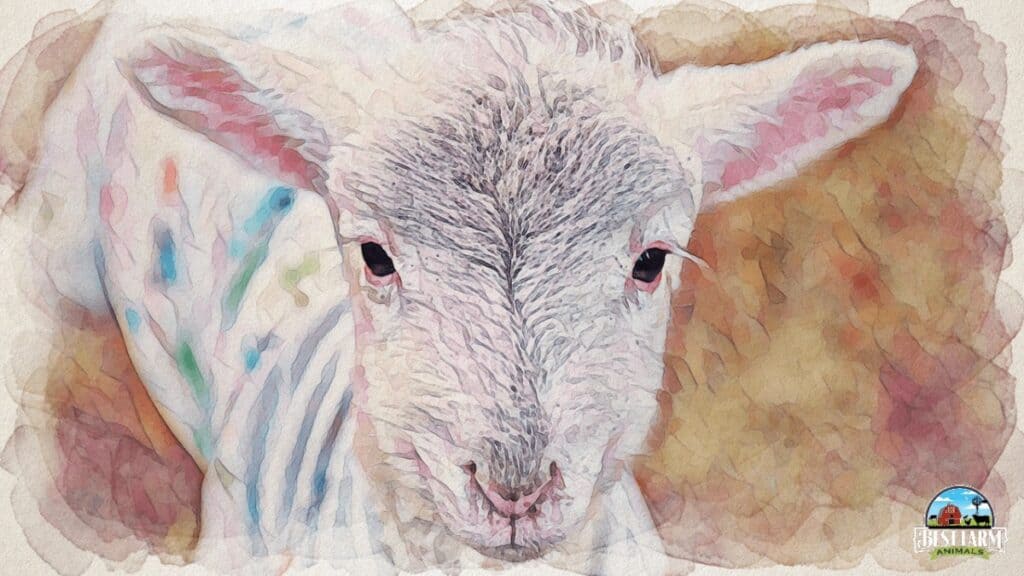When I first got pet sheep for my girls, I wasn’t the most prepared. That led to a very hectic few weeks of scrambling to meet their needs. It was more stressful than if I had taken a month to prepare before bringing home my lambs.
I’m glad that my girls and I choose to raise lambs as pets. But, to save you stress and time, I’ve compiled the basics of sheep care so you can be prepared when you bring home your pet sheep.
Sheep Essentials: What You Need To Prepare For Your Pet Sheep
Sheep have specific needs that you should be aware of.
- Annual Sheering
- Nutritional Needs
- Hoof Trimming
- Vaccinations and Deworming
- Companionship
- Lifespan of a sheep is 10-12 years
- Safe place to roam
- Be aware of poisonous plants
- Local laws
Annual Sheering
Most breeds of sheep will need to be shorn in the spring.
That means that you will either need to learn how to do it or will need to pay someone to shear your sheep. A wooly sheep is super uncomfortable in the summer and can more easily get heat exhaustion
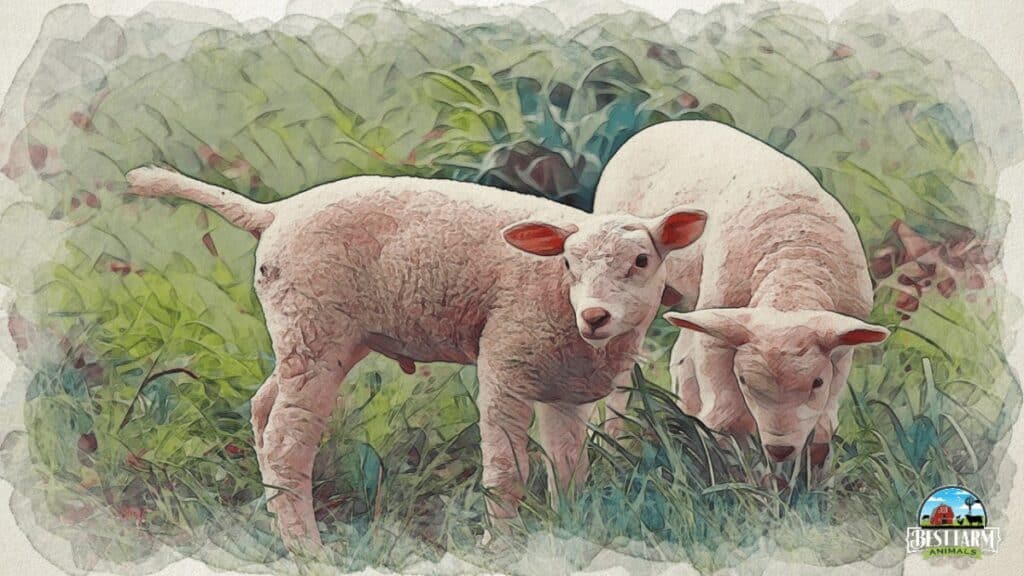
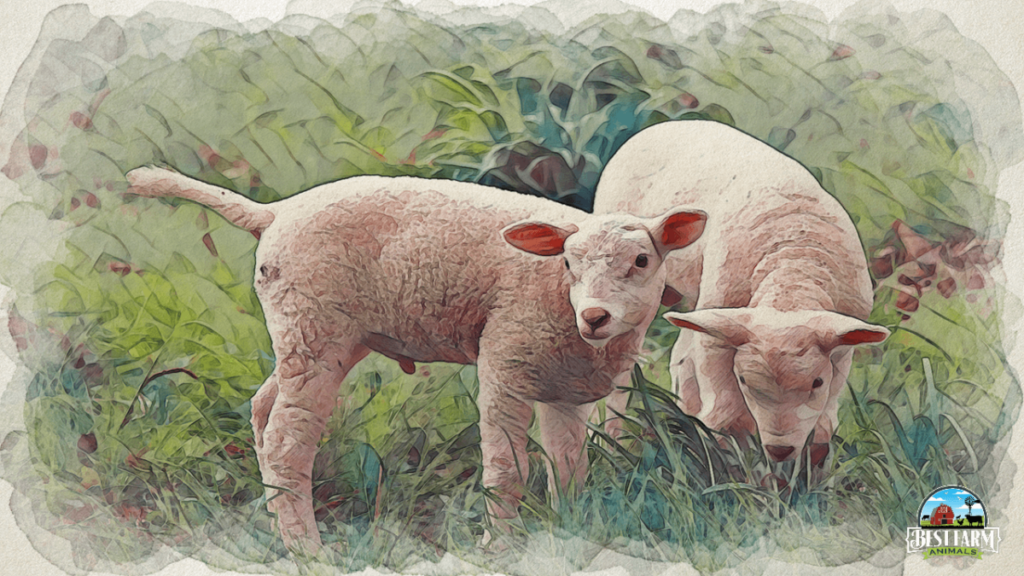
Dietary Needs
You will also want to be aware of the nutritional needs of your sheep. Sheep should never be fed human food. It will cause them extreme digestive discomfort and will make them very unhealthy. They aren’t like dogs, where many dog owners feed their pets table scraps, regardless of what the vet says… Sheep will get sick and will not live as long if fed table scraps.
And that’s assuming they are willing to eat the scraps.
Sheep are vegetarian. They do best on a diet of hay and grass. In the winter they can be fed grain as an additional supplement to their diet.
Do not feed normal livestock grain to sheep. Grain that is fed to sheep should be 100% balanced for sheep.
But, even grain can easily make a sheep overweight and unhealthy. Consider how your will feed your pet sheep hay if it is a house pet. Will you feed it outside, in the garage, or in a room in your house?
Another nutritional need of sheep is salt. They should have free access to a salt block. Be careful not to purchase a mineral block for goats however, as sheep can get copper toxicity from goat salt blocks. My suggested product is found on my Resources page.
- Grass and hay is best for sheep
- Grains should be given sparingly
- Sheep feed can be purchased
- Minerals or salt block on demand
- Freshwater
Hoof Trimming
The hooves on your sheep will continue to grow and will need to be occasionally trimmed. You can do it yourself with hoof trimmers (see resources page) or you can pay someone to do it.
Trimming the hooves helps to keep the hooves even and to keep rocks out, which can split, damage, or hurt your sheep’s hooves.
You will want to trim the outside of the hooves until the hooves are flat and even. Stop trimming when you encounter pink, which is the living part of the hoof.
Holes, gaps, or other dirt in the hoof should be cut away to avoid hoof rot.
Vaccinations and Deworming
Sheep only need one vaccine, which is for clostridial diseases. There are a couple of options for this vaccine so it’s best to talk to your vet about the best one for your sheep. They’ll need two vaccines as a lamb and then an annual booster.
Generally, sheep are healthy but the biggest health issue they might face is worms. It’s relatively normal for sheep to have some worms in their system but it becomes a problem when they get too many.
Take a look at how sheep get worms:
- Worm eggs in the sheep’s feces hatch
- The infective larvae from the eggs get onto the grass
- The sheep eats the grass
- Worms grow in the sheep’s system
Signs of a worm problem include a sheep who is not eating properly, losing weight, lags behind the flock (not so easy to tell with a pet), or is weak.
If you suspect worms, check in with your vet for a test and a deworming product.
Companionship
Another thing to consider is the companionship needs of a sheep. As I’ve mentioned, (and will keep mentioning) it is vital that you plan to provide your sheep with at least one other sheep companion.
If you aren’t able to do more than 3 sheep, you can provide your sheep with additional animal companions such as donkeys, goats, or other animals.
You should also be willing and able to spend time with your lamb and continue to spend time with your sheep.
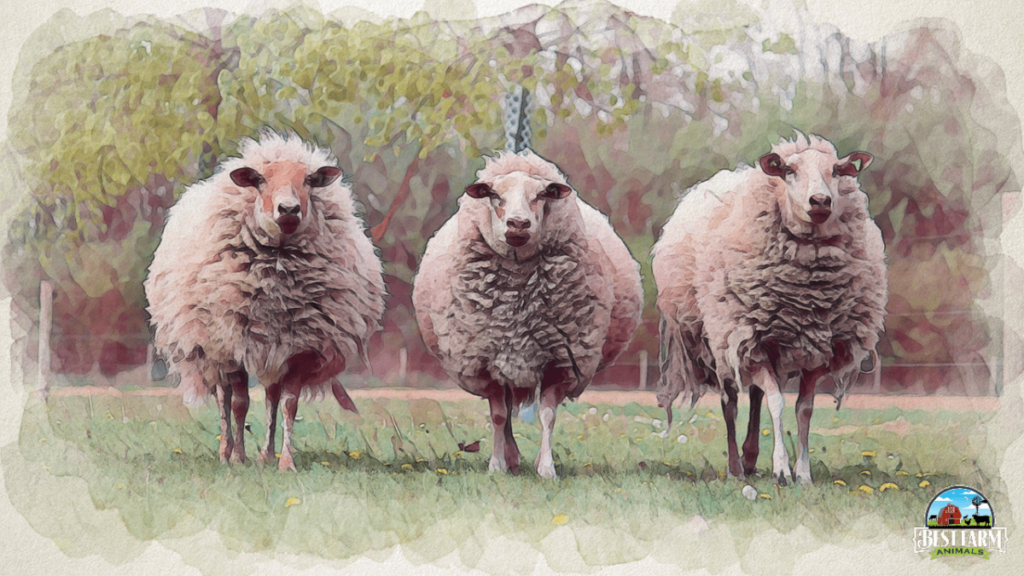
Lifespan
If you raise the sheep from a lamb, be willing and able to continue to care for it. Sheep can live 10-12 years so it is quite a commitment that should not be taken lightly.
It’s a good idea to have a contingency plan in place. Maybe a house-pet sheep isn’t working out. A contingency plan may move you to provide a barn or stable as shelter and some yard for your flock to graze in.
Or, perhaps the particular sheep you adopted seem too aggressive for your family dynamics. Perhaps an aggressive sheep needs a larger flock or is used to more area to roam.
Safe Place To Roam
Sheep need to be outside during the day. They will need a fenced-in area that’s safe from predators.
Ideally, you want at least an acre of grassy area for your sheep. You need at least 50 square feet if you can’t manage this. You can choose from a few different types of fences for your sheep or goat enclosure:
- Woven/Net wire
- Electric fence
- Split rail with wire
Barbed wire fences are not recommended, nor is tethering your pet to a tree or post. Both of these options leave your sheep vulnerable to attacks from predators. They can also get stuck in the line.
If your sheep will spend a lot of time outdoors, it also needs somewhere to get out of the elements. This might be an extra-large doghouse or a large doggy door allowing them to enter a garage or shed.
Poisonous Plants
You need to keep your pet sheep away from any garden areas. Certain plants are toxic and you don’t want to risk your pet sheep getting a hold of them. This is not a complete list but here’s a look at some toxic plants:
- Azaleas
- Chrysanthemums
- Acorns
- Chokecherry
- Buttercups
- Daffodils
- Holly
- Elderberry
- Black locust bark
You also need to keep the sheep away from any fruit trees. The fruit won’t harm the sheep but you can lose the fruit tree if the bark gets stripped.
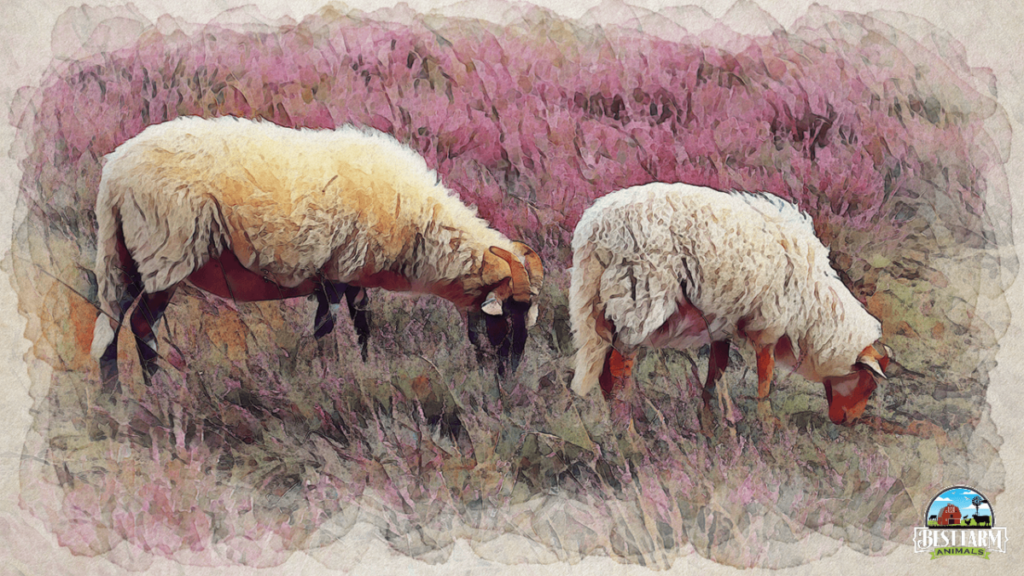
Local Ordinances
If you live in the city limits, you should check with local law. Some cities have restrictions on what animals you can own inside city limits. Sheep are usually considered livestock and are often banned inside city limits.
Preparing For A Pet Sheep FAQs
Do Sheep Like Being Petted?
Sheep generally like being petted if they have been raised from a lamb and socialized to people. Sheep that are raised in a flock and do not spend much time 1:1 with humans will not like being petted as much and may dislike it. Pet sheep should be raised from as young as possible with much human interaction.
How Long Do Sheep Live As Pets?
Nearly all breeds of sheep will live 10-12 years as pets, but some sheep breeds live as long as 20 years as pets. Pet sheep tend to live longer than other domesticated sheep. That’s because pet sheep are often given care, comfort, and health care that is more expensive and not cost-effective for farm domesticated sheep.
Can You Keep A Sheep In Your House?
Sheep can be kept in a house, but there are several aspects that should be considered and planned for. Lambs can grow quite large, potentially damaging furniture. Manure and urine management as well as housetraining your sheep are aspects that will need to be considered and resolved to successfully raise a sheep indoors.
My Essential Sheep Supplies
This list contains affiliate products. Affiliate products do not cost more but helps to support BestFarmAnimals and our goal to provide farm animal owners with accurate and helpful information.
This little giant bucket fits on a fence and this one’s easy to carry.
A sturdy dog collar is essential. Don’t do rope (they’ll break and tangle) or chain (injury!).
A Black Water Tub is way nicer than buckets that tip over. I like to get a 20 or 30-gallon in each pen so my goats have plenty of water, but you can get 100-gallons if you have a lot of sheep in one pen.
Loose minerals in a small bag or a Purina 50 lb bag, and a mineral feeder for free-choice is the best option. One side holds minerals, and the other holds baking soda. Don’t feed sheep goat minerals because it usually contains copper- something that is fatal to sheep.
Hoof trimmers are a necessity because you’ll need to trim your sheep’s hooves every few months. These are nice for the price.
Shearers like these aren’t too costly but do a decent job. Sheep wool jams normal shearers and once you are ready, I’d recommend the ones from Premier 1 Supplies.
Don’t make the mistake I made by waiting to order a drench gun before you need it. I was surprised by how often I use it. It helps with bloating, dehydration, and other ailments. Here’s a good drench, but you can also drench a bloat solution or water if dehydrated.
Digital Thermometor for when your lambs act sick. You’ll need to know if their temps are too low or too high so you can accurately diagnose the issues.
Vetericyn for wound care. It makes a big difference in a speedy recovery.
These heavy duty clips for fences, to clip ropes to collars, and a million other uses. They are stronger than carabeeners, which we broke a dozen of before switching to these.

